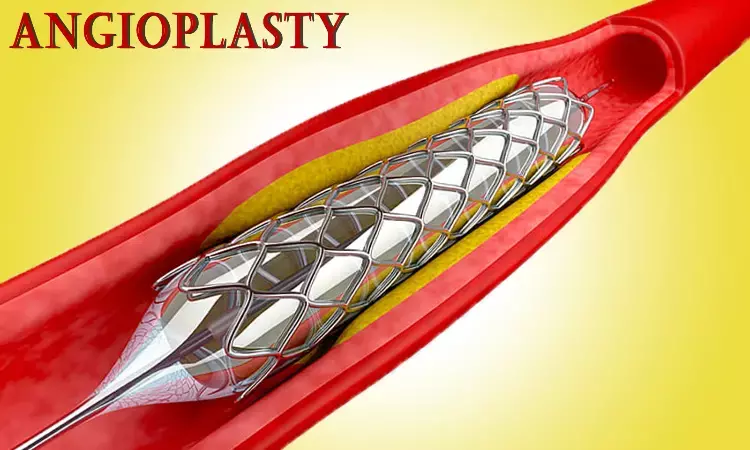- Home
- Medical news & Guidelines
- Anesthesiology
- Cardiology and CTVS
- Critical Care
- Dentistry
- Dermatology
- Diabetes and Endocrinology
- ENT
- Gastroenterology
- Medicine
- Nephrology
- Neurology
- Obstretics-Gynaecology
- Oncology
- Ophthalmology
- Orthopaedics
- Pediatrics-Neonatology
- Psychiatry
- Pulmonology
- Radiology
- Surgery
- Urology
- Laboratory Medicine
- Diet
- Nursing
- Paramedical
- Physiotherapy
- Health news
- Fact Check
- Bone Health Fact Check
- Brain Health Fact Check
- Cancer Related Fact Check
- Child Care Fact Check
- Dental and oral health fact check
- Diabetes and metabolic health fact check
- Diet and Nutrition Fact Check
- Eye and ENT Care Fact Check
- Fitness fact check
- Gut health fact check
- Heart health fact check
- Kidney health fact check
- Medical education fact check
- Men's health fact check
- Respiratory fact check
- Skin and hair care fact check
- Vaccine and Immunization fact check
- Women's health fact check
- AYUSH
- State News
- Andaman and Nicobar Islands
- Andhra Pradesh
- Arunachal Pradesh
- Assam
- Bihar
- Chandigarh
- Chattisgarh
- Dadra and Nagar Haveli
- Daman and Diu
- Delhi
- Goa
- Gujarat
- Haryana
- Himachal Pradesh
- Jammu & Kashmir
- Jharkhand
- Karnataka
- Kerala
- Ladakh
- Lakshadweep
- Madhya Pradesh
- Maharashtra
- Manipur
- Meghalaya
- Mizoram
- Nagaland
- Odisha
- Puducherry
- Punjab
- Rajasthan
- Sikkim
- Tamil Nadu
- Telangana
- Tripura
- Uttar Pradesh
- Uttrakhand
- West Bengal
- Medical Education
- Industry
Smokers needed angioplasty and stenting a decade before non-smokers

Kerala’s Heart Patients in Peril as Distributors Halt Stent Supplies
Smokers needed their blocked arteries fixed nearly a decade earlier than non-smokers, and patients with obesity underwent these procedures four years earlier than non-obese patients, according to a new statewide study.
The research included patients without a history of heart attack who were treated at hospitals across Michigan participating in BMC2, the Blue Cross Blue Shield of Michigan Cardiovascular Consortium. The patients had undergone angioplasty and/or stenting to widen or unblock their coronary arteries and restore blood flow. Almost all of them had at least one traditional risk factor, including smoking, obesity, high blood pressure, high cholesterol and diabetes. Most had three or more.
Additionally, women generally had their first procedure at a later age than men. Over the past decade, among patients undergoing their first angioplasty or stent procedure, the rates of obesity and diabetes have increased, while smoking and high cholesterol have decreased.
"Smoking is a completely preventable risk factor," said senior author Devraj Sukul, M.D., M.Sc., an interventional cardiologist and a clinical lecturer at the University of Michigan Health Frankel Cardiovascular Center. "If we direct additional efforts at preventing smoking and obesity we could significantly delay the onset of heart disease and the need for angioplasty and stenting."
Smoking cessation is a growing focus of the Michigan Collaborative Quality Initiatives, of which BMC2 is a member.
"In Michigan, we will work to help every smoker quit at the time of cardiac care because it is an unmatched teachable moment for patients," said Michael Englesbe, M.D., a surgeon and professor at Michigan Medicine who serves as portfolio medical director for the Collaborative Quality Initiatives.
Sukul also serves as associate director of BMC2's work in percutaneous coronary intervention.
https://journals.plos.org/plosone/article?id=10.1371/journal.pone.0250801
Hina Zahid Joined Medical Dialogue in 2017 with a passion to work as a Reporter. She coordinates with various national and international journals and association and covers all the stories related to Medical guidelines, Medical Journals, rare medical surgeries as well as all the updates in the medical field. Email: editorial@medicaldialogues.in. Contact no. 011-43720751
Dr Kamal Kant Kohli-MBBS, DTCD- a chest specialist with more than 30 years of practice and a flair for writing clinical articles, Dr Kamal Kant Kohli joined Medical Dialogues as a Chief Editor of Medical News. Besides writing articles, as an editor, he proofreads and verifies all the medical content published on Medical Dialogues including those coming from journals, studies,medical conferences,guidelines etc. Email: drkohli@medicaldialogues.in. Contact no. 011-43720751


